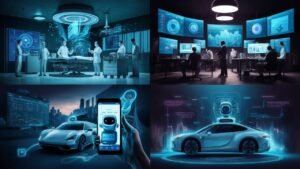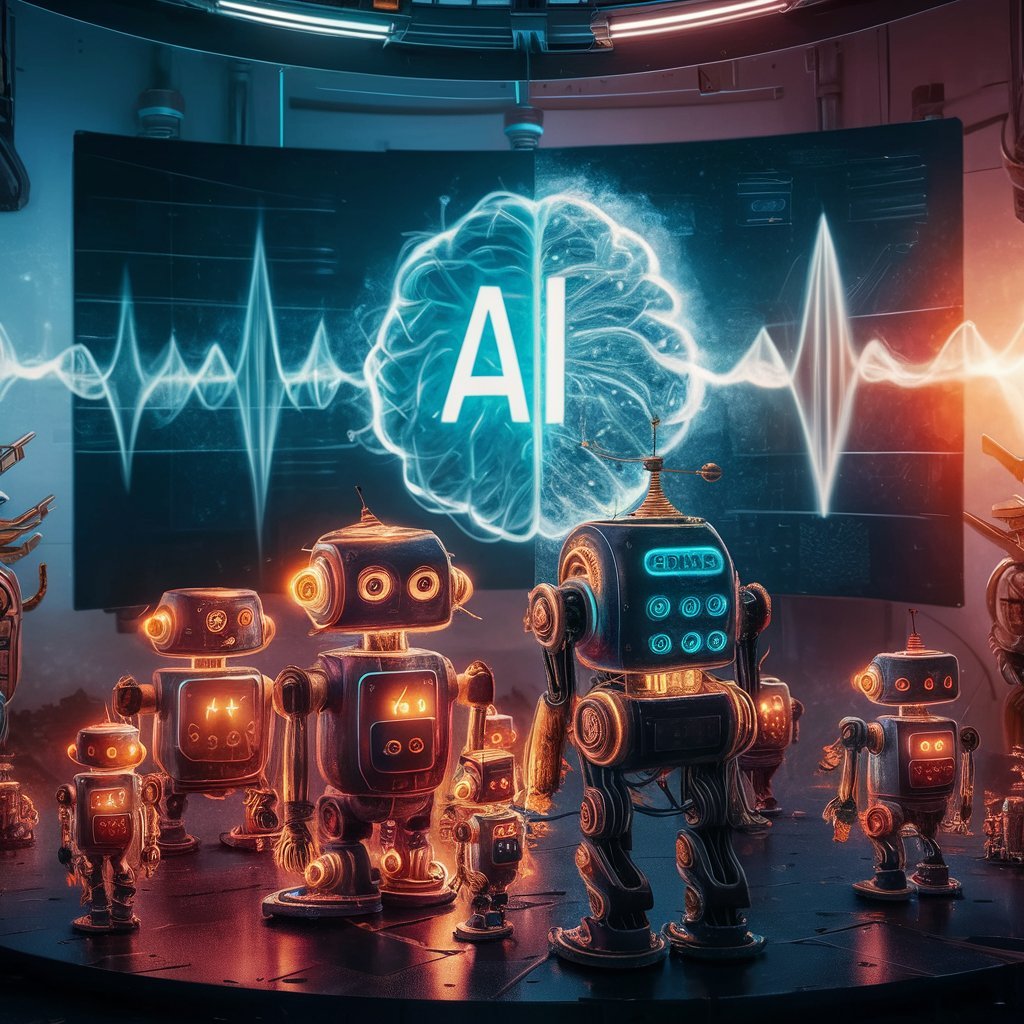Introduction
Artificial Intelligence (AI) has rapidly evolved from a futuristic concept into a transformative force shaping various aspects of our lives. From virtual assistants to self-driving cars, AI is revolutionizing industries and enhancing our daily experiences. In this comprehensive guide, we’ll delve into the essence of AI, explore its diverse applications, and glimpse into its promising future.

What is Artificial Intelligence?
At its core, Artificial Intelligence refers to the simulation of human intelligence in machines that are programmed to think and learn like humans. These intelligent systems are designed to perform tasks that typically require human intelligence, such as visual perception, speech recognition, decision-making, and language translation.
The Evolution of AI
AI’s journey began in the 1950s with pioneers like Alan Turing, who proposed the idea of machines that could mimic human intelligence. Over the decades, AI has evolved through various stages, from rule-based systems to machine learning and, more recently, deep learning. Each stage has brought AI closer to mimicking human cognitive abilities.
Key Applications of AI
1. Healthcare
AI is revolutionizing healthcare by enabling early diagnosis, personalized treatment plans, and efficient administrative processes. Machine learning algorithms analyze vast amounts of medical data to detect patterns and predict disease outcomes, leading to improved patient care.
2. Finance
In the financial sector, AI is enhancing fraud detection, algorithmic trading, and customer service. AI-powered chatbots provide instant assistance to customers, while predictive analytics helps financial institutions make data-driven decisions.
3. Autonomous Vehicles
Self-driving cars are one of the most visible applications of AI. These vehicles use sensors, cameras, and AI algorithms to navigate and make real-time decisions, promising safer and more efficient transportation.
4. Customer Service
AI-powered virtual assistants and chatbots are transforming customer service by providing quick and accurate responses to inquiries. This technology not only improves customer satisfaction but also reduces operational costs for businesses.
The Future of AI
The future of AI holds immense potential, with advancements in natural language processing, robotics, and cognitive computing. As AI continues to evolve, it will unlock new possibilities in fields such as education, entertainment, and environmental sustainability.
Ethical Considerations
While AI offers numerous benefits, it also raises ethical concerns. Issues such as data privacy, job displacement, and algorithmic bias need to be addressed to ensure the responsible development and deployment of AI technologies.
Conclusion
Artificial Intelligence is not just a technological advancement; it’s a paradigm shift that is reshaping our world. By understanding its capabilities, applications, and ethical implications, we can harness AI’s power to drive innovation and improve the quality of life. As we stand on the brink of an AI-driven era, the possibilities are limitless, and the future is bright.
The heart of Nintendo’s new console isn’t the Switch



[…] Ultimate Guide for Beginners and Experts Stories of 10 Famous Olympic Athletes Who Made History The Wonders of Artificial Intelligence The History of the Olympic Games How to Earn Money Online: A Comprehensive […]
[…] Ultimate Guide for Beginners and Experts Stories of 10 Famous Olympic Athletes Who Made History The Wonders of Artificial Intelligence The History of the Olympic […]